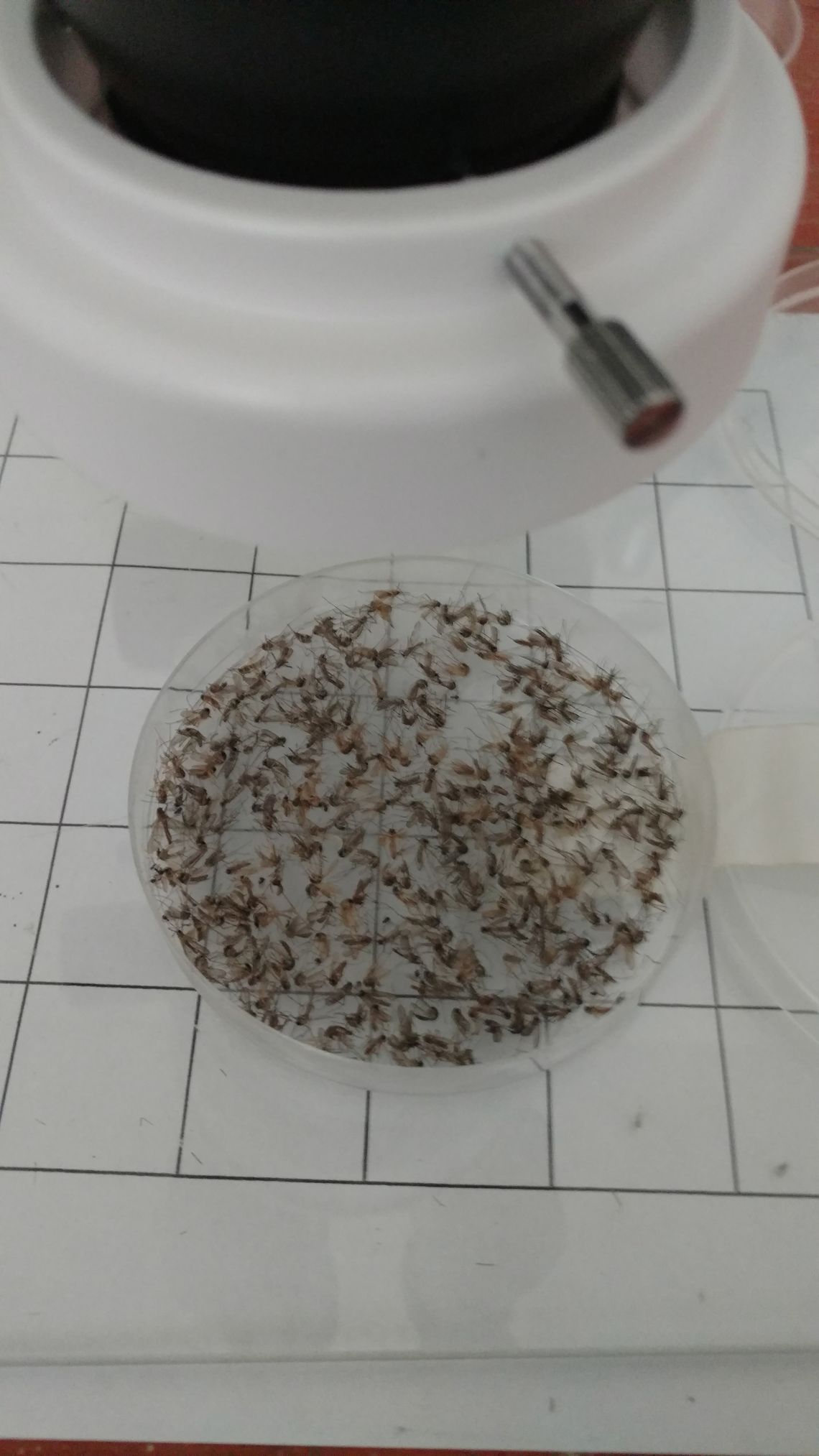Abatement District constantly tests for presence of West Nile virus — courtesy of Churchill County PIO
As summer turns to autumn, Churchill County officials remind residents that it continues to test for mosquitoes and West Nile virus. Residents can do their part to eliminate conditions favorable to mosquito breeding ground by removing standing water in toughs, gutters, barrels, pans and the like. Churchill County is fortunate to have a Mosquito Vector and Weed Abatement District with staff that traps adult mosquitoes at sites where factors such as service requests, bird populations, presence of birds that appear sickly, excessive stagnant water or fluctuating water levels in drains and pastures are present. The latter is an especially dynamic factor in the Lahontan Valley where flood irrigation is the means for water delivery. “Our staff traps six to nine locations per week and submits samples of the adult mosquitoes trapped to the State Animal Disease lab for testing,” said Nancy Upham of the Mosquito Abatement District. “The traps used are carbon dioxide (dry ice) traps which attract adult mosquitoes and funnel them into nets. We collect the nets the next morning and sort the adult mosquitoes by species.” Certain species of mosquitoes are more competent carriers of diseases than others, explained Upham. “For example, Culex mosquitoes (Culex tarsalisand Culex erythrothorax), are common in the valley and are known as effective transmitters of viruses such as the encephalitises,” she said. In a typical trap, Mosquito Abatement District staff finds about 10-500 Culextarsalis and submits them into vials, or “pools” of 50 mosquitoes or less depending on the collected numbers. These “pools” are tested through a process at the State Animal Lab for the different encephalitises present in the valley. When the Mosquito Abatement District receives positive confirmation of virus from these submitted “mosquito pools,” they then prioritize those areas to be fogged immediately, dependent on weather conditions, according to Upham. After areas of concern are fogged using a natural material (pyrethrin), staff re-traps adult mosquitoes and re-test them the next week. Fogging the area typically breaks the transmission cycle by killing the infected flying adult female mosquitoes. Mosquitoes that fly into that area after fogging are generally not infected and the retested areas come back as negative for virus. The Mosquito Abatement District provided a quick comparison of the last few years: 2017 - 167 mosquito pools tested; approximately 18 positive mosquito pools 2018 - 150 mosquito pools tested; approximately 24 positive mosquito pools 2019 -213 mosquito pools tested; six positive mosquito pools to date with 12 mosquito pools still to be tested Anyone with questions about the process or who want to notify the district of mosquito-prone areas, please call the district office at 423-2828, leave a message and staff will return the calls. Read more local news – return to the home page at www.thefallonpost.org/ Support your local news source, make a contribution today. www.thefallonpost.org/support-our-work/












































Comment
Comments